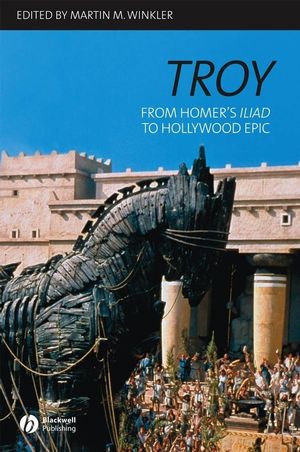Troy: From Homer's Iliad to Hollywood EpicISBN: 978-1-4051-3183-4
Paperback
244 pages
July 2006, Wiley-Blackwell
 This is a Print-on-Demand title. It will be printed specifically to fill your order. Please allow an additional 15-20 days delivery time. The book is not returnable.
Other Available Formats: Hardcover
|
||||||
“This is an excellent collection of essays….a very useful, informative, and readable book, a book which itself, perhaps, takes its place in the way we understand the stories of the Trojan War.” (International Journal of the Classical Tradition)
"Classics and film is a staple of university curricula; it has become respectable, in large part thanks to Winkler's own persistent dedication ... Certainly [the book's] roster of contributors is aptly chosen for philological and ... archaeological strength-in-depth ... All of us working in the subject area will need to familiarize ourselves with the volume's contents ... We will be seeing a lot of this material in student essays and dissertations from here on in ... A strong and appealingly diverse field of essays ... adventurous in scope and very well informed. It will inspire students and professionals alike to fresh explorations." (Arion)
"Any reader interested in understanding the relationship between the Homeric texts and this film will profit greatly from this collection… I would even highly recommend this collection to readers of Homer with little interest in contemporary film. [Such] insights should encourage the reader to look at the Homeric texts with a new perspective." (New England Classical Journal)
"A fascinating collection of highly-readable essays by prominent film scholars and ancient historians, covering topics all the way from the place of ancient literature in modern film to the archaeology of the actual ancient Troy, to the politics of the new Petersen movie — and the politics of a historian advising a Hollywood film. Highly recommended." –Arthur M. Eckstein, University of Maryland“A well-elaborated study of the impact Troy has had on
philological and other circles.”
–Anthony Makrinos, Greek and Latin Department, University
College



